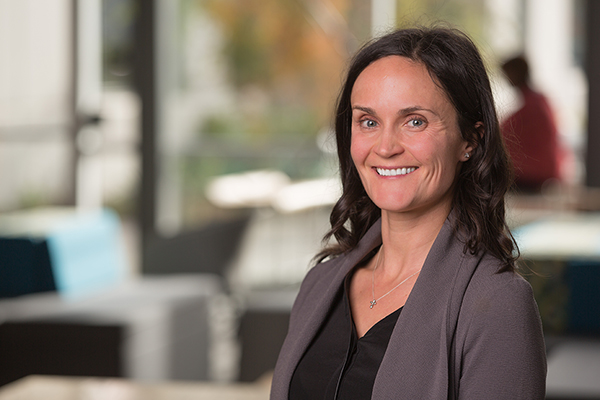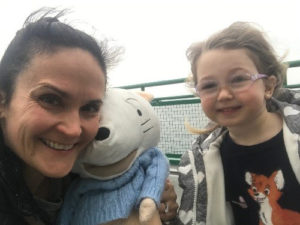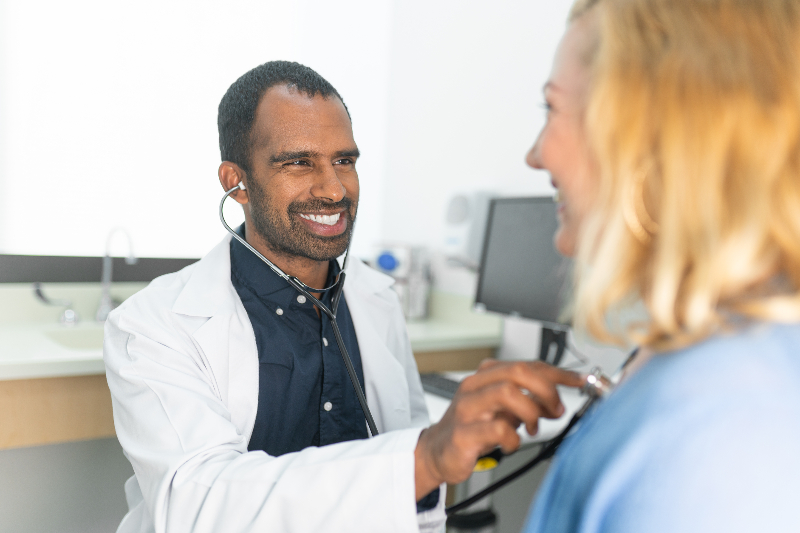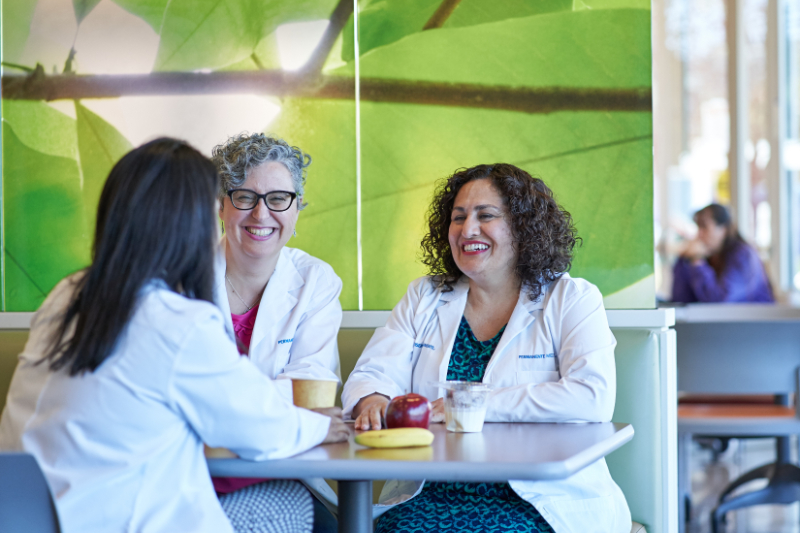The AMA recognized 4 Permanente Medical Groups for continuing efforts to support physician wellness with 2023 Joy in Medicine™ recognitions.

Michelle Carle, MD, is an ophthalmological surgeon with our Washington Permanente Medical Group.
Helping Athletes See the World
Michelle Carle, MD, Serves as a Healthy Athlete Director for 2018 Special Olympics USA Games
Kaiser Permanente is proud to serve as the official health partner of the Special Olympics USA Games in Seattle on July 1 to 6, 2018. We’ll occasionally focus on the Permanente physicians who’ll be behind the scenes supporting the athletes and volunteers participating in the games.
Ophthalmological surgeon Michelle Carle, MD, of the Washington Permanente Medical Group, has a passion for helping others see the world and loves to be around kids. She will be serving as a healthy athlete director for the 2018 Special Olympics.
Q: How long have you been at Kaiser Permanente?
I started working for Kaiser Permanente and the Washington Permanente Medical Group in November 2017 after we moved to Washington state. But I was a contracted provider for retina services when I was in private practice in California.

Q: How do you spend your free time?
I mostly chase after my children, my husband, and our dog. Just kidding! I have a 3-year-old and an 18-month-old. We do a lot of playing, take family walks, and enjoy cooking. My children have lovely imaginations and great energy.
Q: How do you thrive?
I sometimes struggle with thriving. I often feel pulled in many directions, but I try to make choices with how I spend my time that create more harmony. It can be challenging to shift gears between my work and home life because they are very different environments and require different skill sets. My New Year’s resolution is to put more effort into my own health and well-being, so that I can start to thrive. Knowing you need a change is the first step and I feel good about that.
Q: Tell us about your role as a healthy athlete director for the USA Special Olympic Games.
I’m a director for “Opening Eyes,” which will run vision screenings and provide athletes with glasses, prescription sunglasses, and sports goggles.
Q: Do you know anyone with disabilities? What can you share with us about their life? What are some of the challenges they face in any given day?
My patients often have significant visual impairment and they don’t let that stop them, especially the children. They go hard with everything in life and always seem to be up to the challenge. Just navigating in the world can be difficult for the partially-sighted.
Q: This is your first time volunteering for the Special Olympics, what are you most looking forward to at the games?
I’m excited to see the athletes perform, and I’m also looking forward to the smiles on their faces when they get their new prescription glasses or protective eyewear. I’m hoping we can help change the course of vision for some of the athletes. I know that seeing a doctor can create anxiety for those with intellectual disabilities and I’m looking forward to offering the exams in a fun and convenient place.
Q: What are some other organizations you have volunteered for throughout your life, and how have those experiences inspired you?
I have often been involved in social justice types of groups (Amnesty International, local soup kitchen, etc.), and more recently became a board member of the Valley Center for the Blind in Fresno, California, where I used to work. Working with people and trying to make the world a better place makes you feel that your time is very well spent.


